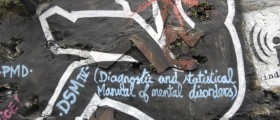
Paranoia presents an irrational and delusional thinking by which a person believes to be in constant threat and reads completely irrational and unsupported meanings in various actions. Paranoia develops gradually and the affected person is unaware of the problem. An evident sign of paranoia is that such a person is continually suspicious and tends to misinterpret new situations and even people despite the evidence in real life.
The person becomes extremely sensitive and emotional to the level of pathology so it is not a rare case to experience pathological jealousy. Paranoid people take things from a distance, are prone to depression, and easily get irritated. For all their mistrust they become reserved, introverted and unsociable.
Paranoia appears to be a symptom in paranoid schizophrenia with the difference that in schizophrenia, it is not that constant and permanent. Paranoia can turn into a serious paranoid personality disorder. Paranoid personality disorder is manifested as a general mistrust towards people, even friends and family, verging on bizarre and pathological mistrust. People affected with such personality disorders are always watchful and fearful with the tendency to read trickery and mischief in their friends or colleagues.
They always interpret harmless comments and usual conversations in negative ways, as conspiracies against them and threats. Everyone around them is conceiving some plot which jeopardizes their reputation or health. Always guarded and reserved, they unwillingly talk about their plans and emotions.
There are several types of paranoia. Delusions of grandeur is a kind of paranoia in which a person believes he or she stands out from the crowd by special and genial characteristics he or she has. They think they are endowed with geniality, grand characteristics destined to be great and extraordinary.
Persecutory paranoia as another type usually accompanies delusional.
Here, delusions are that of a victim always in the eyes of others who want to harm or even kill them. People suffering from the religious paranoia are inclined to think of themselves as messengers of God who are sent to save humanity from evil forces. In relation to this, some people feel they are sent to reform people, which is the case of reformatory paranoia. In litigious paranoia, people take legal action against people they believe to conspire against them. Some other types are also erotic and hypochondrical paranoia. In the former, they believe some family members or other people are in love with them, whereas in the latter they believe that they suffer from many diseases and always feel sick.
Psychologists, psychiatrists and medical experts believe certain complexes and personal characteristics to be the causes of paranoia. If a person feels insecure and inferior, they are likely to develop such a condition. Sentimental, shy and introverted people are prone to paranoia. Sigmund Freud suggests suppressing homosexual tendencies can lead to various forms of paranoia.
The treatment of paranoia is difficult since affected people do not want to cooperate with the doctor because they believe doctors also may harm them. Some medications and injecting insulin may prove to be helpful. Not all people who are suspicious are paranoid, but if fears and suspicions disrupt their normal life they should undergo psychotherapy.

















Your thoughts on this
Loading...